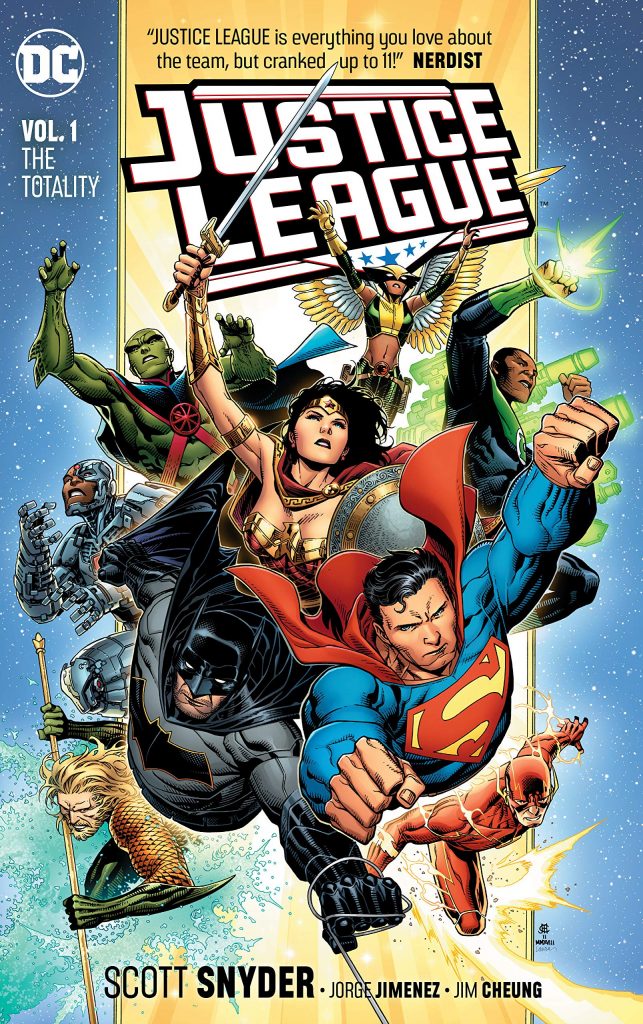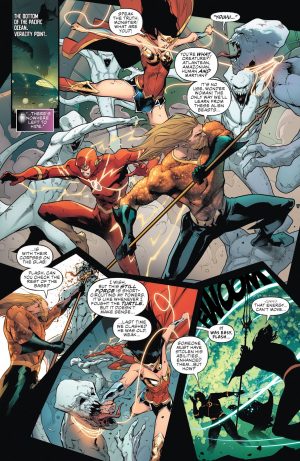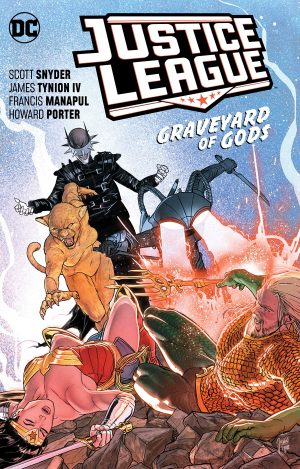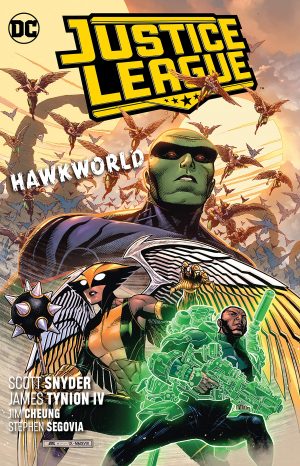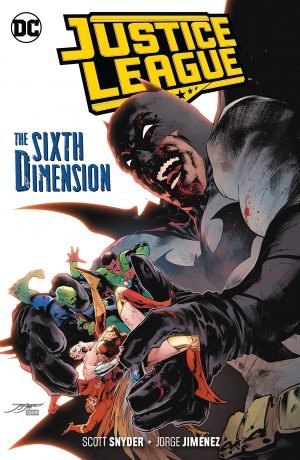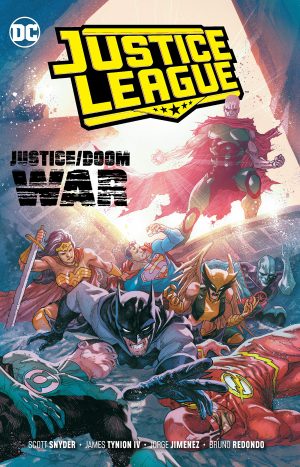Review by Frank Plowright
There’s no denying that Scott Snyder relaunches the Justice League on an epic scale with a threat called the Totality, arriving from beyond simultaneously manifesting throughout time, past present and future. Just as bad, Lex Luthor has organised some of Earth’s worst super villains into the Legion of Doom, in an attempt to exploit the situation while the Justice League are desperately fighting elsewhere by locating the seven forces of the universe.
The logic of having Snyder handle the Justice League’s umpteenth relaunch is solid. His Batman was acclaimed, and more mystifyingly, so was Dark Nights: Metal, so he was seen as a man for the big occasion. He brings a very modern gloss to The Totality, and anyone sticking with the series and picking up subsequent volumes becomes aware that he’s ambitiously attempting a massive long-form story over dozens of chapters. A true graphic novel, if you will.
However, in isolation this opening shot is poor, everyone rushing about telling us how world-shattering the threat is with only the vaguest of explanations why, and uttering portentous dialogue about inadequacies and what must be learned. Anyone picking this up as their first Justice League is confronted by the presumption they’ll already know who everyone is, what they can do and elements of their backstory. Snyder drops vague comments about their pasts that have no relevance, so just frustrate further. And how many times have we seen Lex Luthor gather a bunch of villains, very often the same ones? It amounts to a lot of surface, but very little substance.
Artistically it begins well with Jim Cheung’s smooth pencils on the opening chapter before Jorge Jimenez takes over for most of the remainder. He draws the characters well enough, but his action is a miasma of confusion. It can be claimed that’s what action is, but there’s no devotion to any form of reality in The Totality, so it’s more likely that no-one suggested Jimenez apply some clarity. That comes with James Tynion IV and Doug Mahnke’s chapter sort of unveiling Luthor’s master plan.
By the end the cosmic membrane has been breached, the energy of Umbrax has strengthened, the Still Force is spreading, and the Invisible Spectrum has proved key to power. Further such enigmatic threats manifest in a constant stream of incoherency without any core to it, and the only characterisation is gloating, self-pity and desperation because there’s not a quiet moment of reflection here. Snyder’s calculated the big threats, but without any cohesion, and an explanation papering over the cracks ending the volume is no compensation.
Perhaps there are some who will acclaim this as a masterpiece and will want it combined with Graveyard of Gods in a hardcover edition. Well just for them DC have produced Justice League by Scott Snyder Deluxe Edition. There is some good news, though, and it’s that what Snyder is doing eventually develops into the desperate thriller it should have been here.
